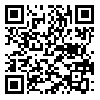Volume 1, Issue 2 (3-2014)
نظریه و عمل 2014, 1(2): 27-46 |
Back to browse issues page
Download citation:
BibTeX | RIS | EndNote | Medlars | ProCite | Reference Manager | RefWorks
Send citation to:



BibTeX | RIS | EndNote | Medlars | ProCite | Reference Manager | RefWorks
Send citation to:
Attaran M, Maleki S. (2014). Homeschooling: An Alternative School Choice. نظریه و عمل. 1(2), 27-46.
URL: http://cstp.khu.ac.ir/article-1-1916-en.html
URL: http://cstp.khu.ac.ir/article-1-1916-en.html
Abstract: (15136 Views)
Abstract: The aim of this study was to explore the situation of homeschooling in Iranian system of education. The results of this study derived from a qualitative research performed in 2012. The research population was selected by snowball method. The participants were interviewed. The interviews were semi-structured. The concepts in each interview were extracted. The study showed that all parents in the sample come from middle and upper-middle class of the Iranian society and are highly educated. Participants’ involvement in the education of their children and risk-taking in this regard was high. They didn’t have a positive view toward the formal system of education, but their decision for homeschooling their children were mostly educational, not ideological. They consider the formal system of education as a unilateral system, which destroys the creativity of children, merely emphasizes memorization, and neglects some subject like sport, English language, music and arts. According to them, school is a closed space where everybody should take a seat, just listen and hide their real personality. The Iranian homeschooling method is not limited to the textbooks and carries on mostly in natural space. It is mainly based on short-term skills, is not time-bounded and is flexible like its global counterparts. The findings show that this kind of education has increased parents’ relationship with themselves and their children. Their children are self-adjusted and independent in learning. However, because of the novelty of this kind of education, and its non-legal state, it is not accepted by the society at this stage. Occasionally, the homeschooling children and their parents confront several different challenges including mocking, anxiety about the future of their children etc.
Type of Study: Research |
Accepted: 2017/07/2 | Published: 2017/07/2
Accepted: 2017/07/2 | Published: 2017/07/2
| Rights and permissions | |
 |
This work is licensed under a Creative Commons Attribution-NonCommercial 4.0 International License. |





